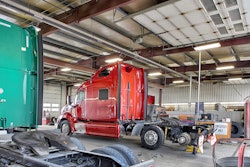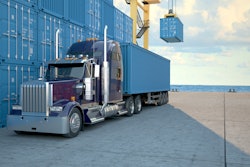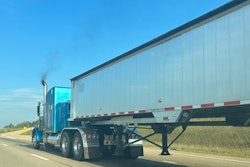Trucking news and briefs for Wednesday, Jan. 3, 2024:
CARB’s Clean Truck Check program officially begins April 1
The California Air Resources Board announced Dec. 18 that its new Clean Truck Check program, which will require truck owners operating in the state to submit to periodic emissions testing, will take effect beginning April 1.
CARB has already extended the reporting deadline for owners to register their trucks in the Clean Truck Check, Vehicle Inspection System (CTC-VIS) and pay a $30 per vehicle compliance fee through Jan. 31. The original deadline was Dec. 31.
The agency said the regulation is being rolled out in phases, with the first phase having been rolled out a year ago in January 2023 with deployments of roadside emissions monitoring equipment to screen for vehicles operating with potentially high emissions. Vehicles identified as potential high emitters receive a “Notice to Submit to Testing” and are required to submit a passing compliance test to CARB within 30 days of receipt of the notice.
[Related: CARB gives another month to register in 'smog check' system]
The second phase of the program was rolled out in September, requiring owners to register their trucks and pay the annual compliance fee.
Before implementation of the final phase of the program, CARB is required to announce an effective date at least 90 days before the date.
As such, as of April 1, 2024, vehicles subject to the regulation must pass an emissions compliance test twice per year, except motorhomes and agricultural vehicles, which must pass an emissions compliance test once per year.
The first periodic testing deadlines will be in July, CARB noted. For California-registered trucks, the periodic testing deadlines will be based on DMV registration date. Trucks registered out of state will be required to test based on the last number of the vehicle’s VIN.
 As an example, VINs ending in “5” have a compliance deadline of March 31 and a second compliance deadline on September 30 (6 months later).CARB
As an example, VINs ending in “5” have a compliance deadline of March 31 and a second compliance deadline on September 30 (6 months later).CARB
Following the initial three years of periodic testing requirements, the compliance testing frequency increases to four times per year on April 1, 2027, for vehicles equipped with onboard diagnostics systems.
[Related: California backs off drayage diesel ban -- for now]
FMCSA leaves random drug, alcohol testing rates unchanged
The Department of Transportation announced Jan. 2 that the minimum random drug and alcohol testing rates for the Federal Motor Carrier Safety Administration will remain unchanged in 2024 from 2023.
Because FMCSA’s random rates did not change for 2024, the agency is not required to publish a Federal Register notice. FMCSA’s random rates last changed in 2020.
With rates staying the same, the random drug testing rate is 50%, while the random alcohol testing rate is 10%. This means that carriers required to perform random drug tests at a rate equivalent to half their number of drivers. This includes the number of leased owner-operators a carrier contracts with, as well as owner-operators in a testing consortium.
Nomination period opens for Distinguished Woman in Logistics Award
The Women in Trucking Association (WIT) is seeking nominations for the 2024 Distinguished Woman in Logistics Award (DWLA).
Supported by Truckstop and the Transportation Intermediaries Association, the award is open to high-performing women in any field related to logistics, including supply chain management, third-party logistics, and trucking.
"We are proud to recognize the talents and passion of women leaders in the logistics industry, not only for their career accomplishments, but their desire to grow future leaders as well," said Jennifer Hedrick, president and CEO of Women in Trucking.
The award selection committee includes representatives from WIT, Truckstop, TIA and academia.
The award originated in 2015 to recognize exceptional individuals for their achievements and leadership in logistics and is given annually during TIA’s Capital Ideas Conference & Exhibition.
The winner of the 2024 DWLA will be announced during the TIA 2024 Capital Ideas Conference & Exhibition, on Friday, April 12 in Phoenix, Arizona.
To nominate a candidate, complete and submit the nomination form by Feb. 12.












